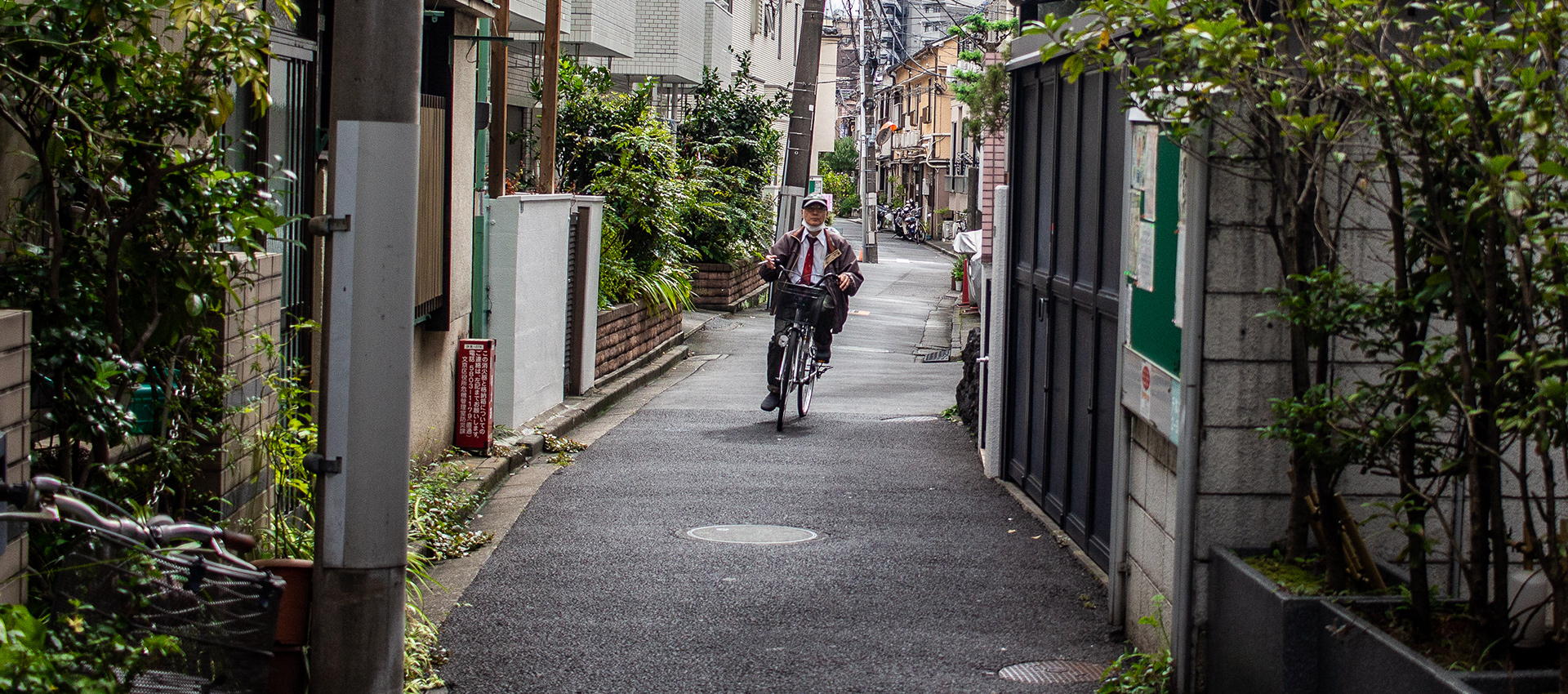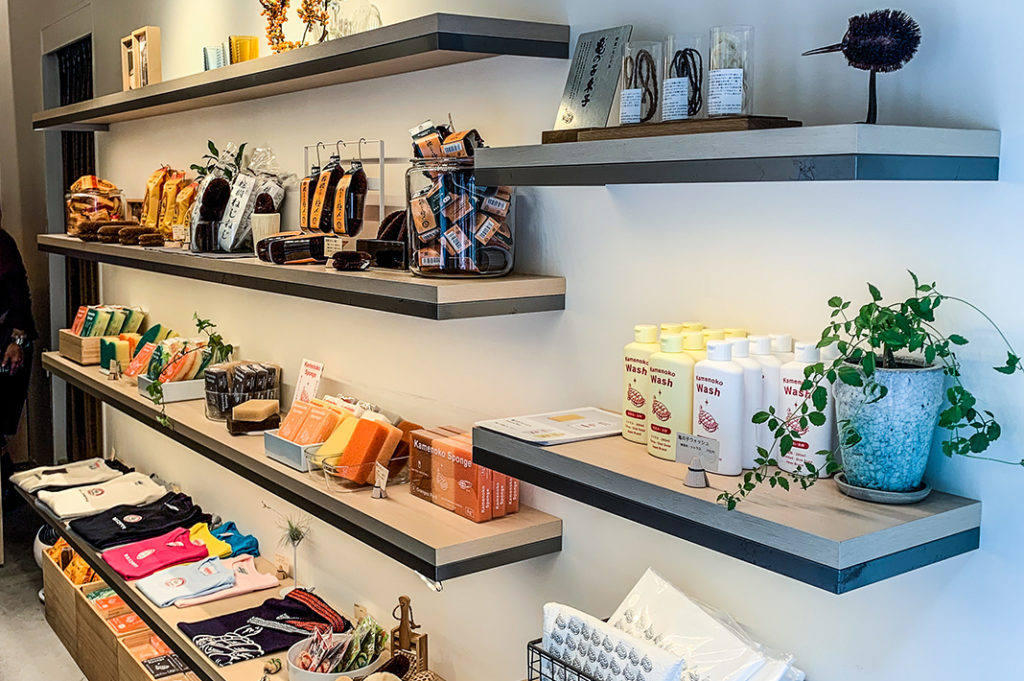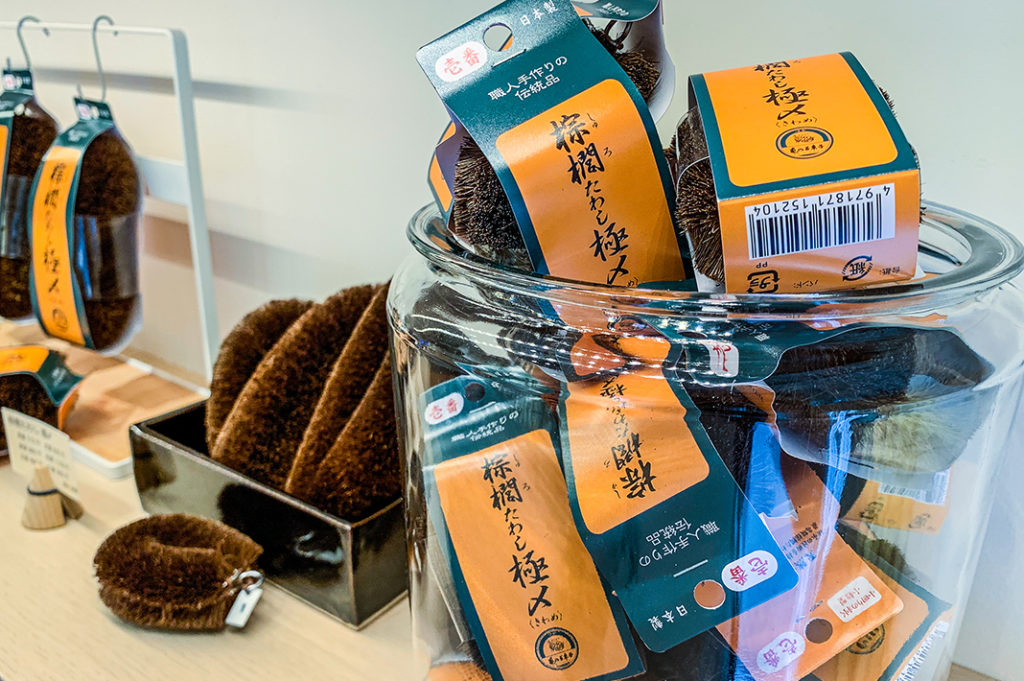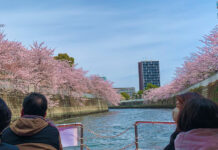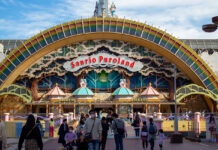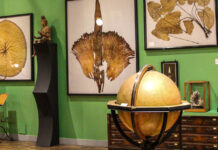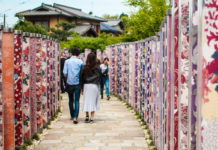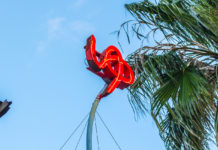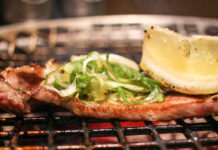On any given day, you can count on the main tourist areas of Tokyo to deliver a cacophony of light and sound and chaos. While that kind of energy has its place, those looking to tap into the culture and personality of Old Tokyo should check out an area like, say, Yanaka. This neighbourhood, northwest of Ueno, in Tokyo’s Taito Ward, is what’s known as a ‘Shitamachi’—or downtown—area, traditionally inhabited by the working class. Sans glitz and glamour, it’s pure history, charm and great photo opportunities. Read below and follow along with this map for our suggested walking tour of Yanaka.
Yanaka Itinerary
As the majority of shops open around 11:00 am, you’ve got plenty of time to get to Yanaka in the morning. Make your way to Nezu Station, on the Chiyoda Metro Line, and walk seven minutes to Nezu Shrine. Though technically not in Yanaka, Nezu it is part of ‘Yanesen’, an umbrella name for the three neighbourhoods of Sendagi, Nezu and Yanaka. They’re not very big neighbourhoods, so you’ll end up wandering through all three on this walking tour.
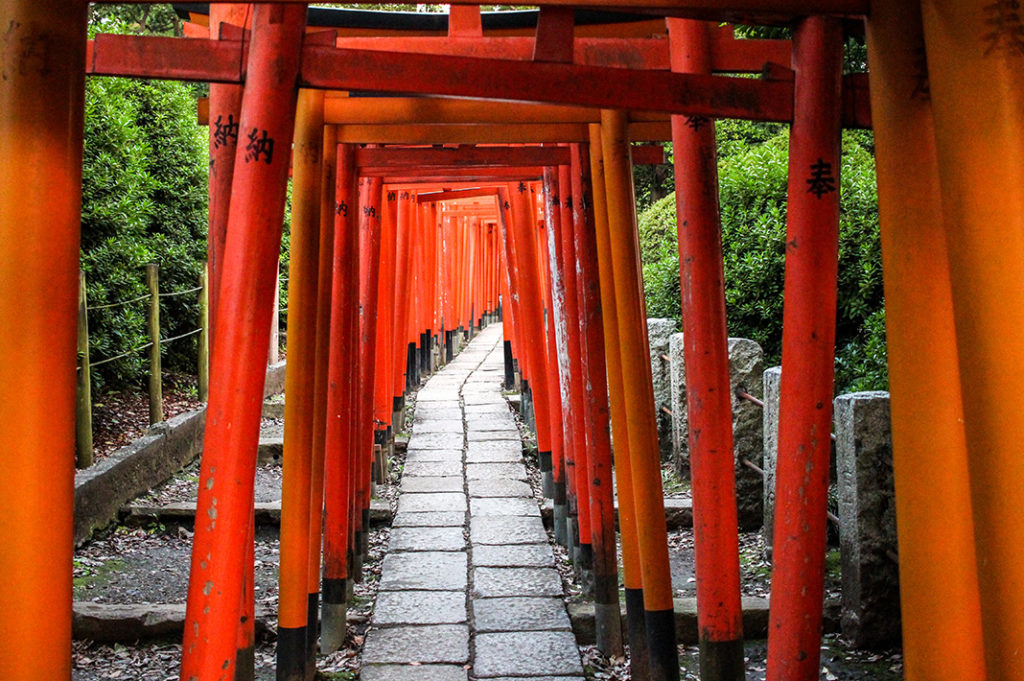
10:30am: Nezu Shrine
This little backstreet gem dates back to 1705 and is somewhat overlooked by foreign visitors. The most famous aspect of this Shinto shrine is the torii gate tunnel, a mini version of Kyoto’s famous Fushimi Inari Shrine. The gates run along the side of the complex to Otome Inari Shrine, a place for maidens to pray for marriage. It’s a great spot to snap some photos, particularly if you can’t get down to Kyoto. (Read about a few other torii gate tunnels in Tokyo here.) If you happen to visit between early April and early May, the grounds come alive with Azaleas when they host their Tsutsuji Matsuri Azalea Festival. Definitely worth a look.
Walk down the wiggly Hebimichi ‘snake road’
When you’re ready, start heading toward Yanaka Ginza via ‘hebimichi’, or snake street. This residential road wiggles its way through the neighbourhood, lined with narrow homes adorned with pot plants and those curious water bottles said to ward off stray cats. Locals zip past on bikes, unpeg laundry from the balconies and chatter to their neighbours.
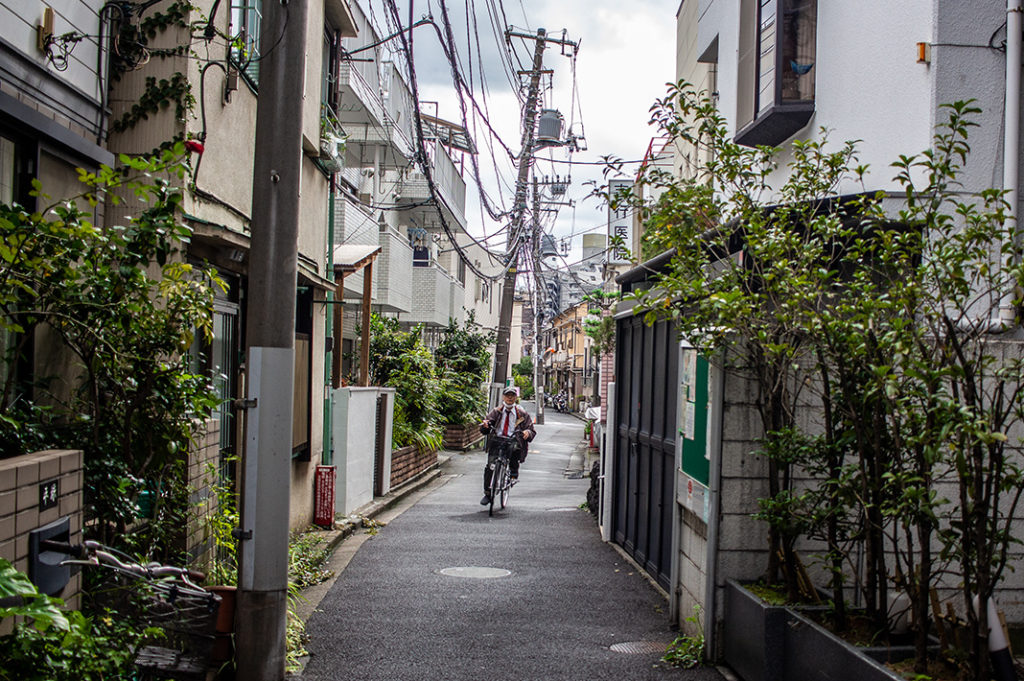
Kamenoko Tawashi
A must-see shop on hebimichi is the Kamenoko Tawashi brush shop, a company that has been in business since 1907 manufacturing scrubbing brushes made from wire and natural fibres. The name ‘kamenoko tawashi’ means little turtle brush, and their flagship product is a scrubbing brush made from wire and natural fibres, designed for cleaning vegetables or scrubbing pots and pans. The brush itself is meant to be turtle-shaped, and the logo is—you guessed it—a turtle. Aside from the original brush, they have expanded into all kinds of homeware products including a range of softer body brushes. If you’re looking for a historic, lightweight and environmentally friendly souvenir, this is it. It’s open 11 am – 6 pm, closed Mondays.
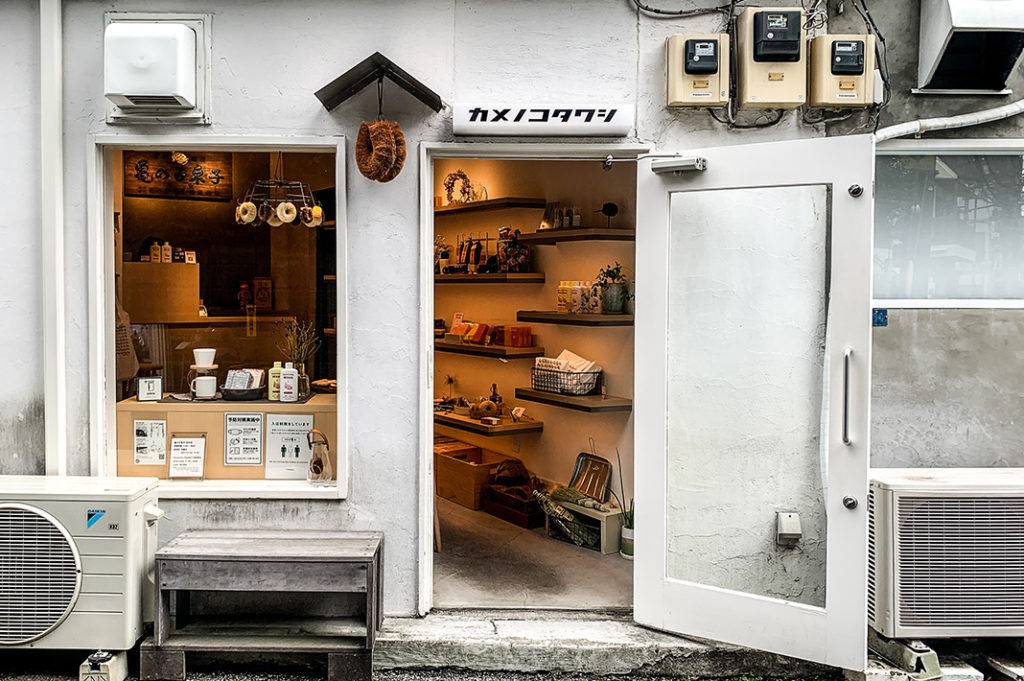
11:30am: Yanaka Ginza
As Yanaka is a Shitamachi (downtown) neighbourhood, you know there’s going to be a great shopping street, or shotengai. Yanaka Ginza is just 170 meters long and contains around 60 stores selling everything from fish, meat and vegetables to sake, clothes, kimono, pottery and tea.
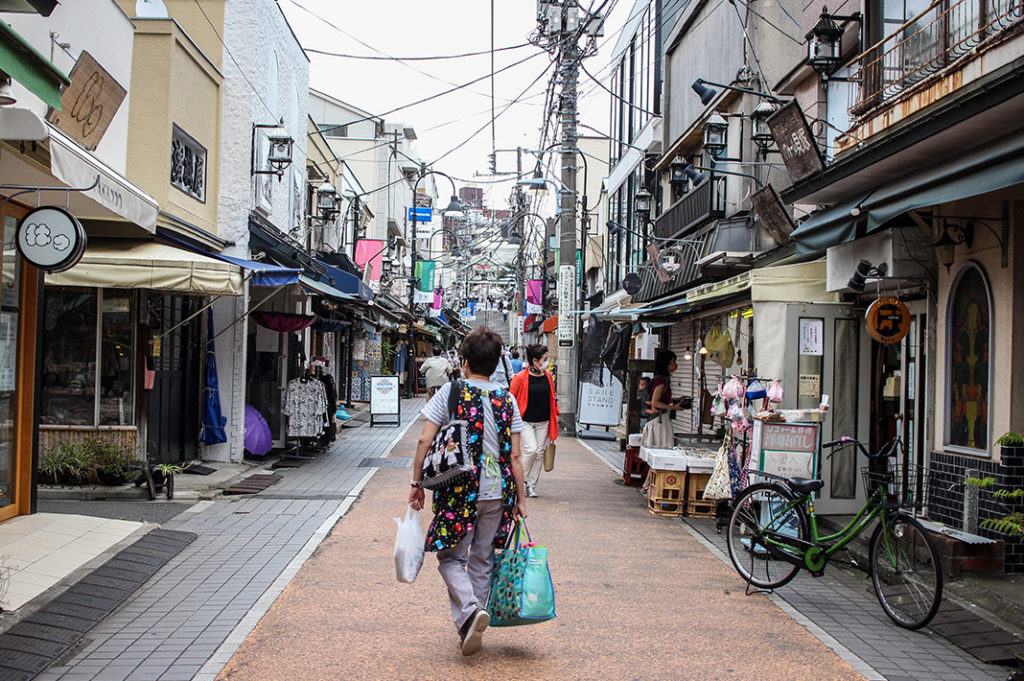
Some of the shops have been operating for many decades, supported by a team of people working to preserve its history and promote it as a tourist attraction. This is a great spot to grab a bite if you’re here around lunchtime.
Don’t forget to check out the Yuyake Dandan staircase, the well-known meeting spot and great vantage point for looking down on the shopping street. Read more about it here.
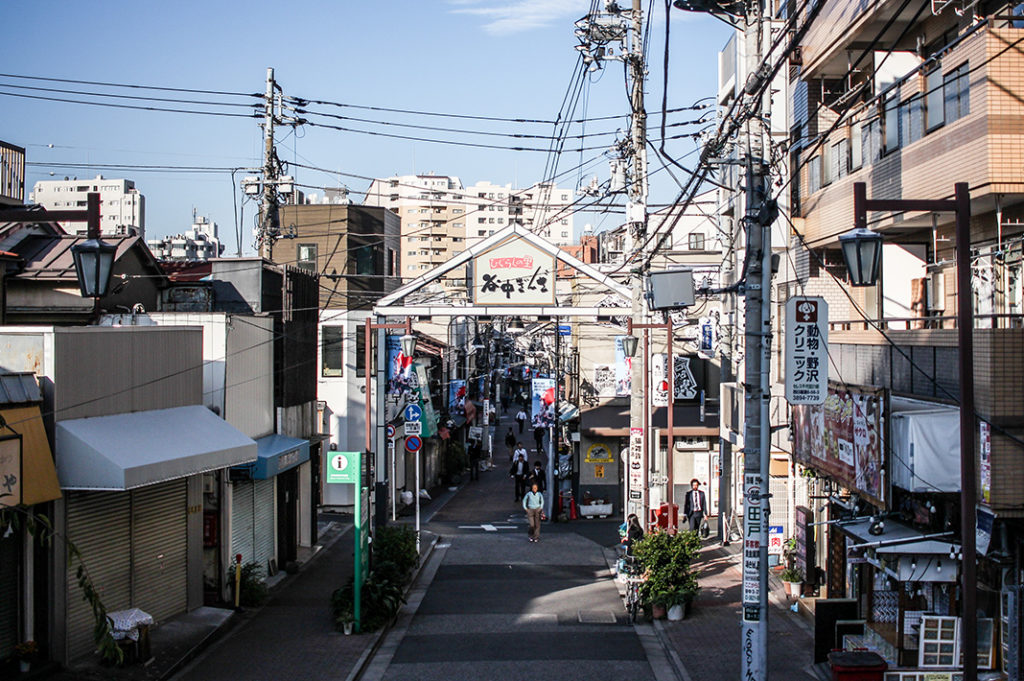
Cats and cat-related imagery
While you’re wandering through Yanaka, you’re sure to notice a cat theme. Affectionately known as “Cat Town”, this neighbourhood is full of cat souvenirs, statues, foods and, of course, stray cats. It’s not known why the cats came to Yanaka, or why the locals have embraced the feline theme so heartily, but as a cat lover, I’m grateful. With so many cute and delicious surprises, Yanaka is one of the best destinations for cat lovers in Tokyo. Read more about the many cat-related attractions here.
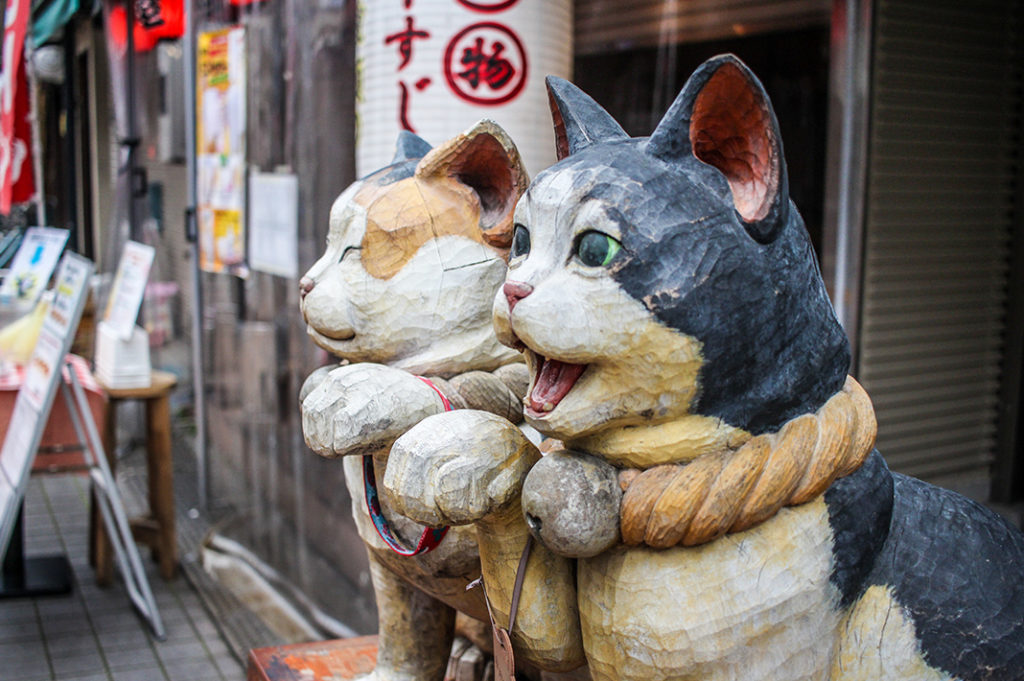
Trainspotting and fabrics
Continue walking straight after Yanaka Ginza and in 5 minutes you’ll arrive at Nippori Station. There, you can join the locals for a bit of trainspotting on Shimogoinden Bridge. Trains are a big deal in Japan, so it’s no surprise to see families lining up to catch a glimpse of the 6 different models zipping by on the tracks below. Most exciting, of course, are the Shinkansen bullet trains, all sleek and shiny, zooming through to distant lands.
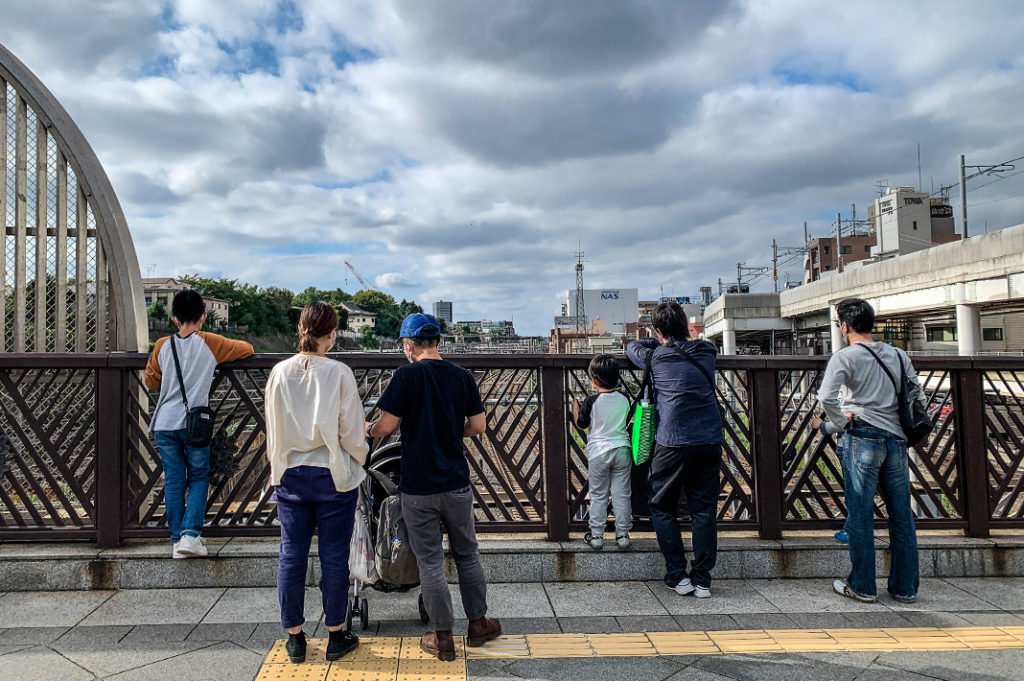
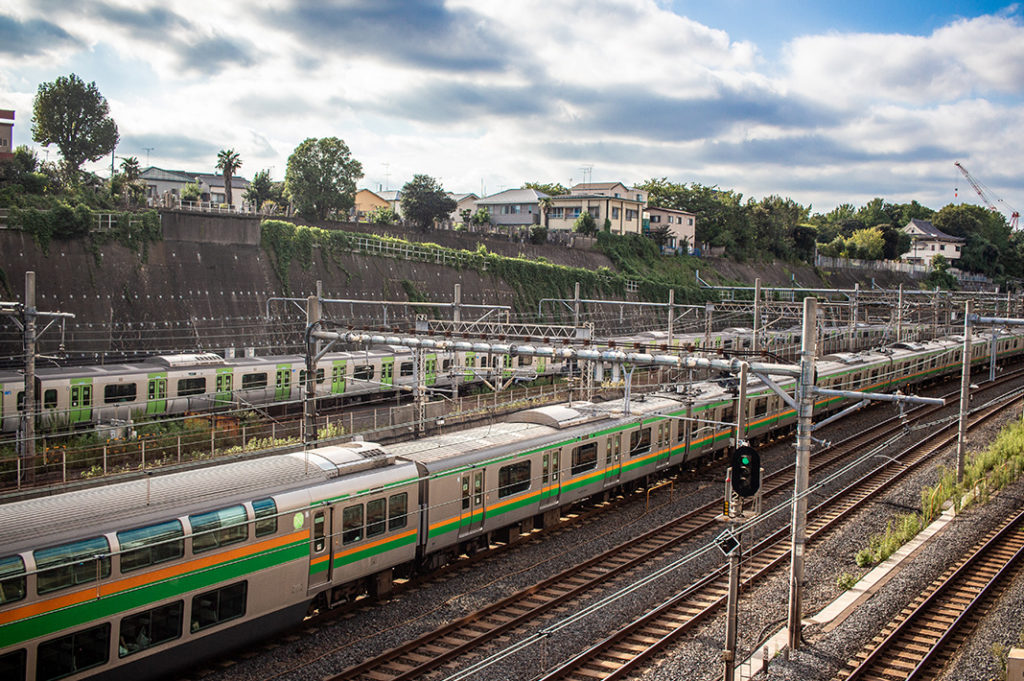
For those who are into handicrafts, it’s worth noting that there is a ‘fabric street’ just on the other side of Nippori station. The main drag, Chuo dori, is home to countless fabric and craft shops, with ‘Tomato’ being the holy grail. Note: most of these are closed on Sundays.
Yanaka Cemetery
This may sound like a spooky inclusion but trust us. Yanaka cemetery covers a lot of ground, and a stroll through here is both beautiful and peaceful. Japanese cemeteries are a little different to ones you’ve seen before so it’s an interesting insight into Japanese culture and religion. As you respectfully make your way through, keep an eye out for glimpses of the Tokyo Skytree through the trees, or even some of the feline residents scurrying about.
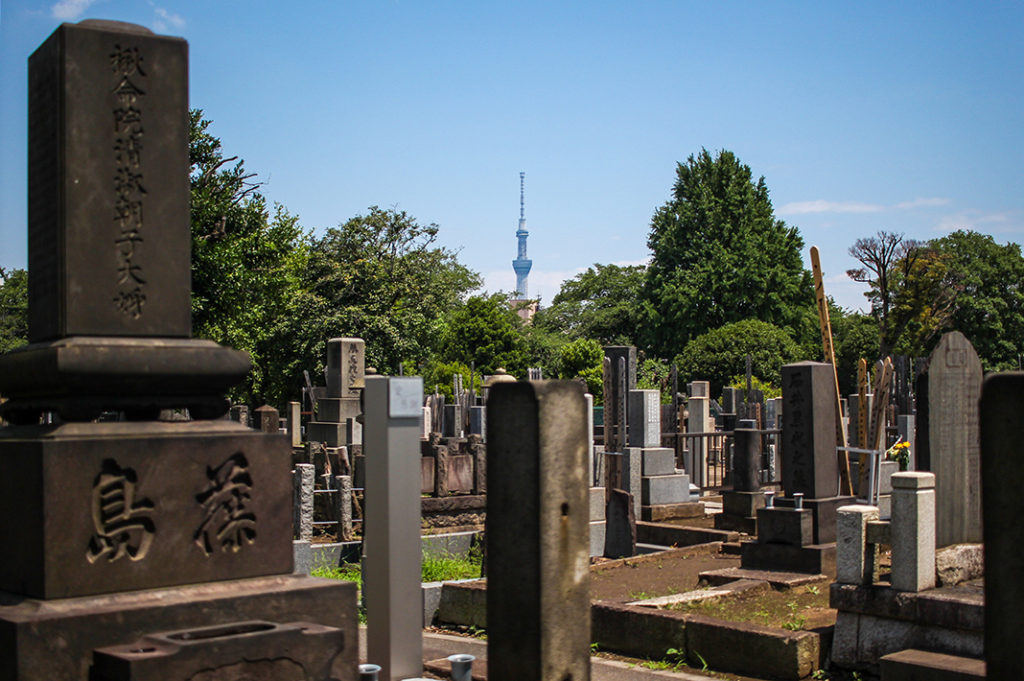
2pm: Yanaka Beer Hall
By this point on the Yanaka walking tour, you’ll be ready to sit down and reflect on everything you’ve seen so far on your walk through yesteryear. One of our favourite places to really soak in the Showa-era (1926 – 1989) aesthetic is at Yanaka Beer Hall. Opened in 2015, Yanaka Beer Hall is located inside a renovated double-storey house which dates back to 1938. The interior is a cosy, mid-century dream with antique furniture and retro bric-a-brac throughout. On tap are a range of craft beers, exclusive to the neighbourhood, poured by the kimono-clad manager Yoshida san. Food is also available for those who are looking to fuel up. Read more about the Yanaka Beer Hall here.
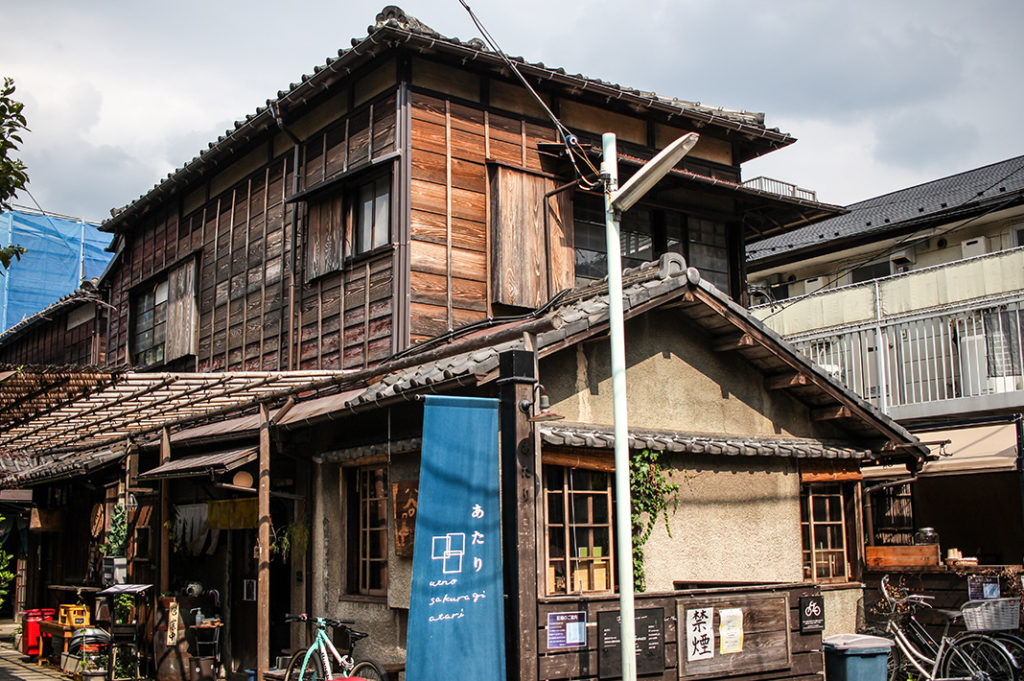
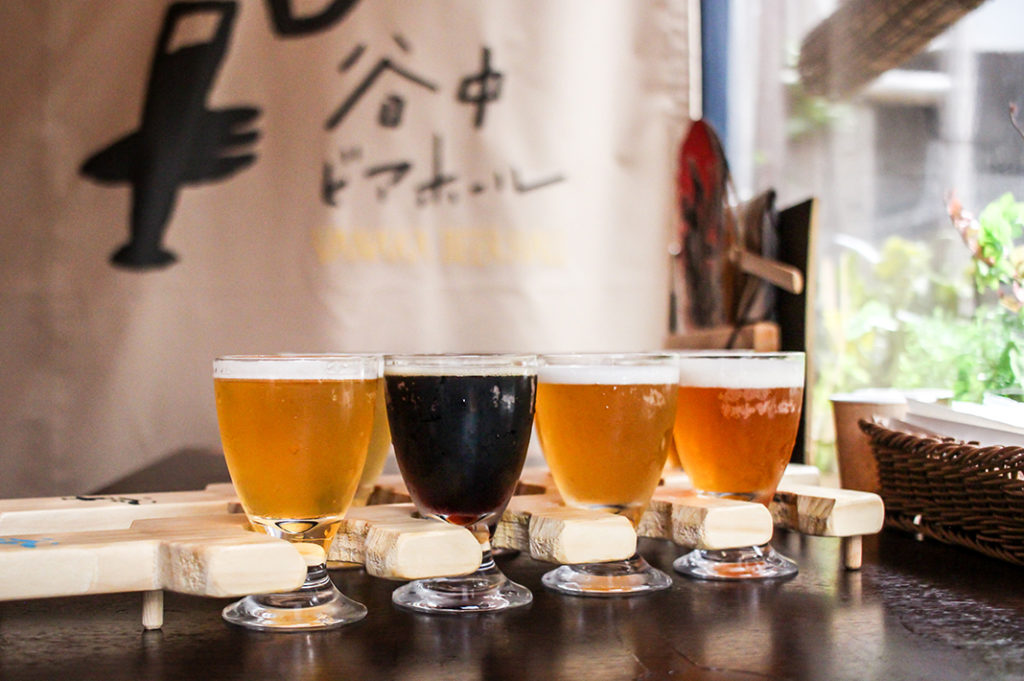
Contemporary art at Scai the Bathhouse
‘Scai The Bathhouse’ is a gallery located just around the corner from Yanaka Beer Hall. It inhabits a public bath house, or sento, with a 200 year old history, so like many attractions on this walking tour of Yanaka, it pays homage to the past while delivering a contemporary experience. Throughout the year, you can catch various exhibitions and events, and enjoy the work of internationally acclaimed artists, including Lee Ufan. Scai the Bathhouse is open from 12–6pm, but closed Sundays.
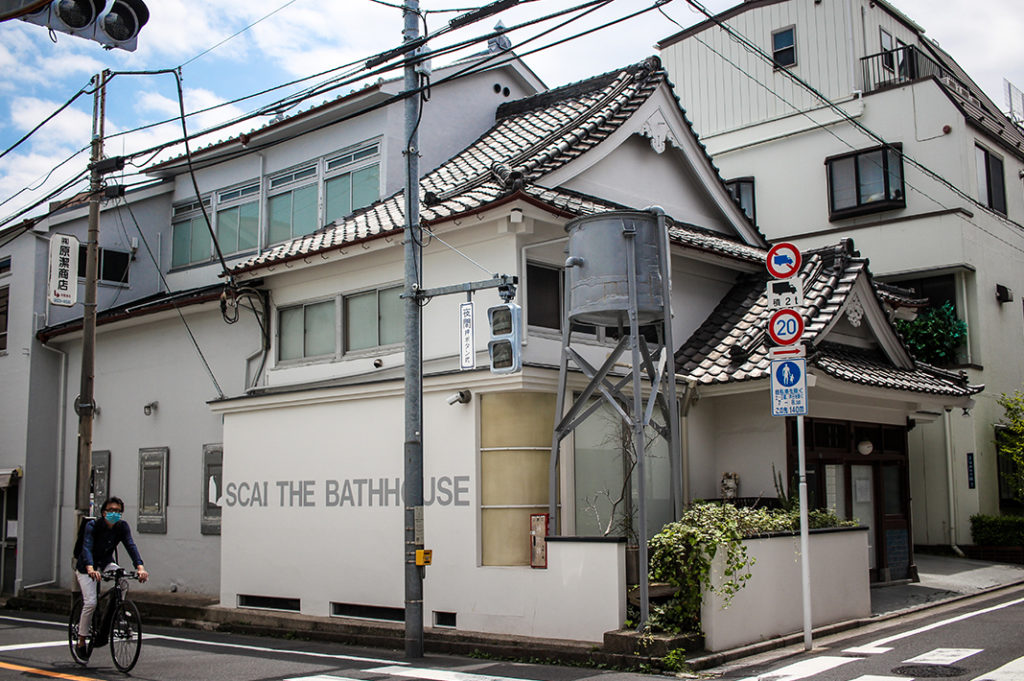
Kabaya Coffee Shop: a symbol of Yanaka
As you make your way towards the Kabaya Coffee Shop, poke your head into Okanoeisen or Saga no Ie which are traditional confectionery stores, complete with scales for weighing senbei crackers.
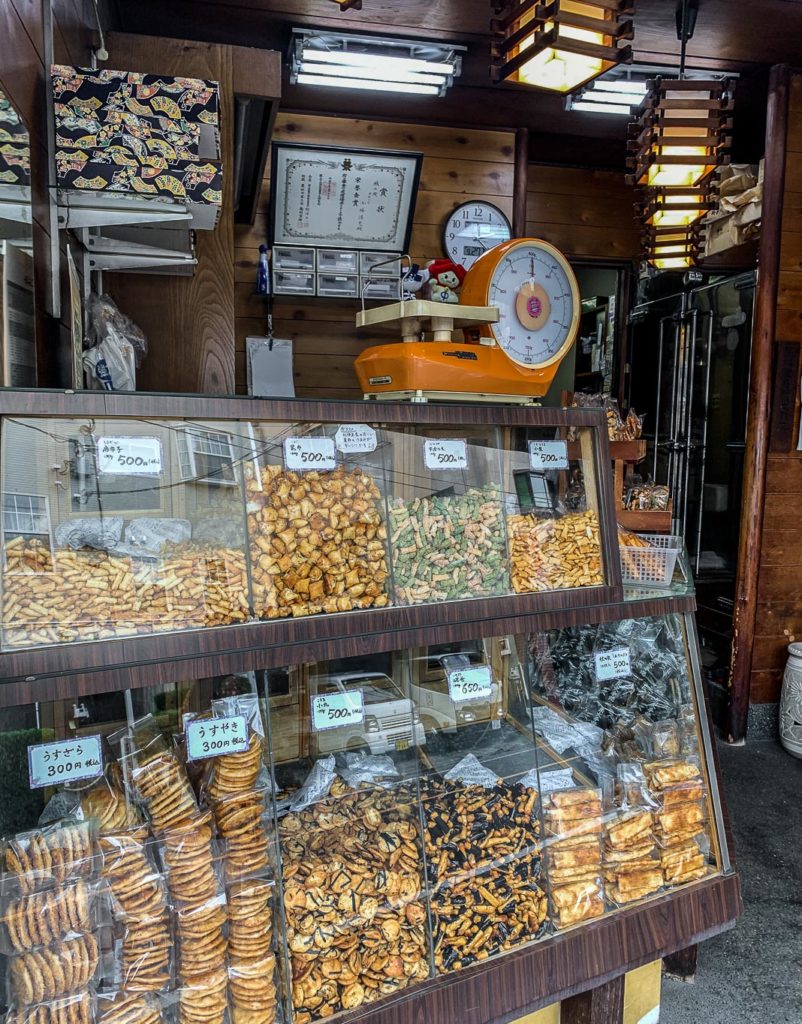
At the end of the block stands Kabaya Coffee, in a wooden building dating back to 1918. Mr Kabaya opened the coffee shop in 1938, running it with his wife and adopted daughter Sachiko. It finally closed 70 years later after Sachiko’s death in 2006. Being such an important part of Yanaka’s landscape, the coffee shop was revived and reopened by volunteers from Scai the Bathhouse and the Taito Cultural and Historical Society. The menu includes desserts, egg sandwiches and, of course, coffee. As you can imagine, it’s a popular spot so you may need to wait a while to gain entry. If you’re keen to try, reserve ahead here, or come in the morning before going to Nezu Shrine. Open 8am–6pm.
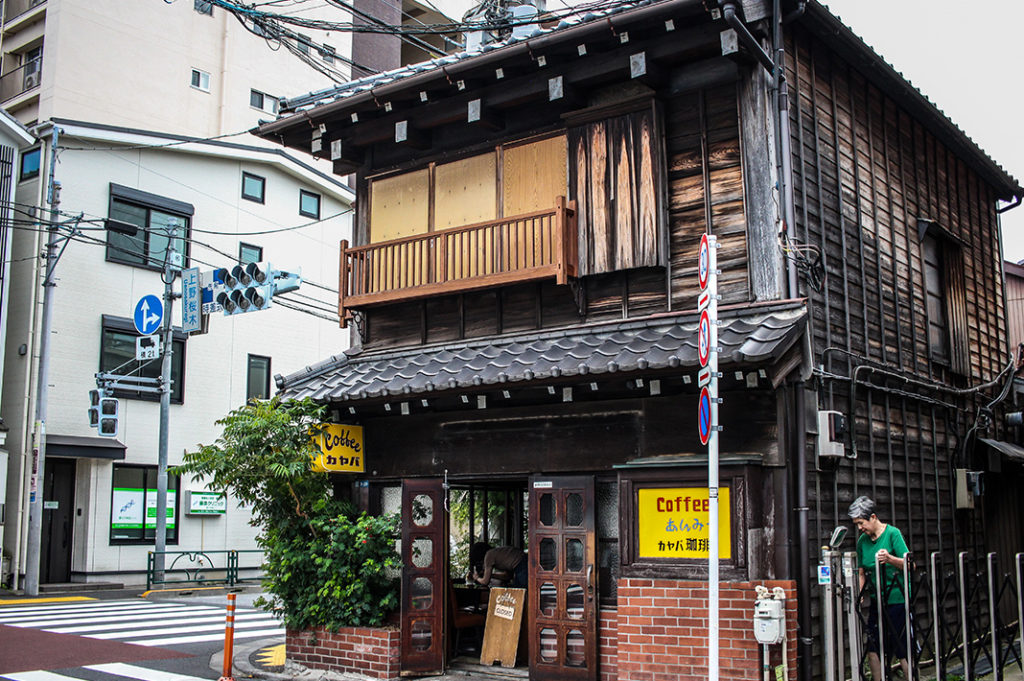
The 100 year old Himalayan Cedar Tree
As the daylight dwindles on your Yanaka walking tour, there are just a few last stops to round out the experience. Take a few backstreets and you’ll come face to trunk with the famous neighbourhood tree. This Himalayan Cedar (Himalaya Sugi, ヒマラヤ杉) is thought to be around 100 years old and has been protected since November 2006. At its base is the tiny old fashioned ‘Mikado Bakery’. It’s amazing to see these remnants of old Tokyo, especially ones that have survived fires, earthquakes and World War 2 bombings.
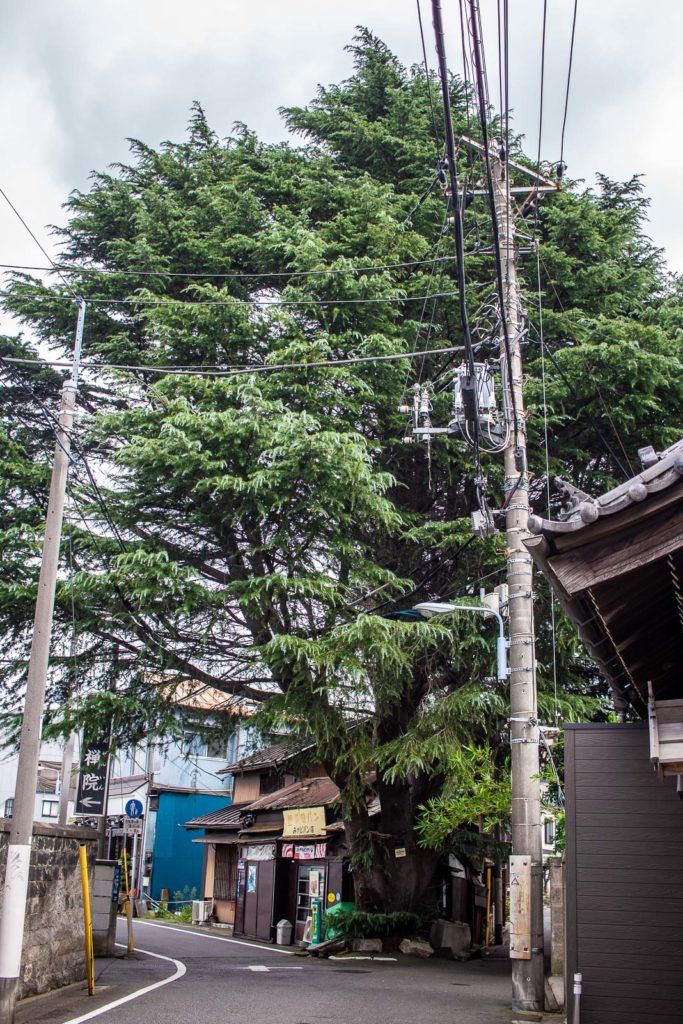
On your way to Nezu Station, walk down the pretty Miura Slope and pop your head into the cat shrine at Nennekoya. As cats are guardians of travel, be sure to pay respects! With that, make your way to the station and head back to your accommodation.
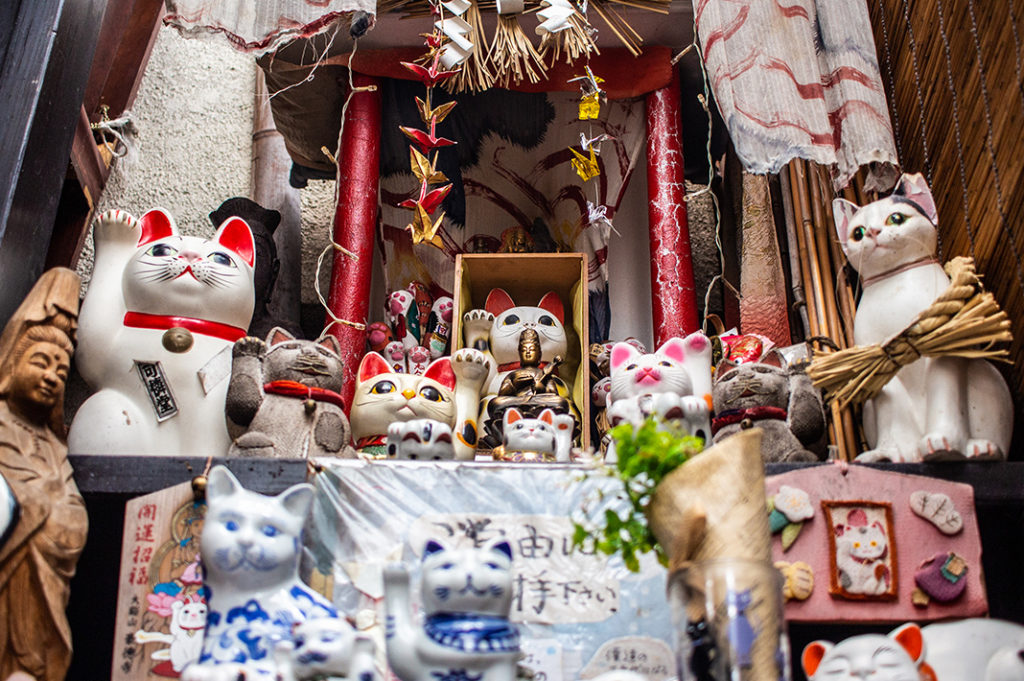
If you enjoyed the slower-paced, more traditional side of Tokyo on this Yanaka walking tour, there’s plenty more to see in Ueno and Asakusa. Be sure to check out our other articles from those areas.
Post by Japan Journeys.



